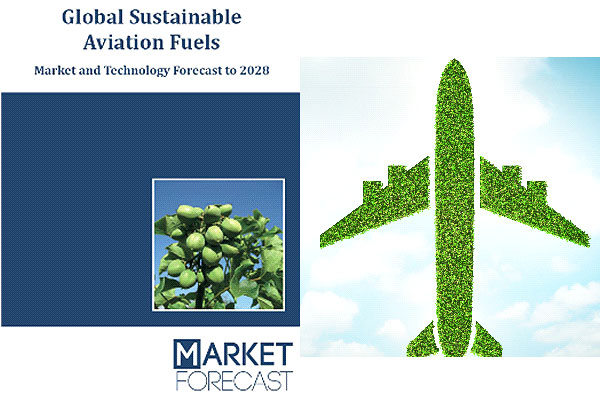North America and Europe are expected to account for four fifths of the SAF (Sustainable Aviation Fuels) market with an estimated revenue of USD 20 million during 2018.
AMSTERDAM, NL – Sustainable aviation fuels (SAF) are advanced aviation biofuels and these are clean, with respect to the measure of carbon footprint created due to their usage. Sustainable aviation fuel is derived from sustainable feedstocks such as waste oil or nonagricultural plants like halophytes, camelina, jatropha or algae as compared to conventional jet fuel which is derived from crude oil. SAF can also be derived from municipal wastes. SAF is one of the important avenues through which the aviation sector can realize their GHG emission goals. For utilization, SAF is blended with conventional Jet fuel and is therefore called a drop-in fuel. SAF has at least 80% less CO2 emissions as compared to aviation jet fuel. In addition to the reduction of total life cycle CO2 emissions, SAF can also reduce direct emissions (particulate matter up to 90% and Sulphur emissions up to 100%) as compared to conventional jet fuels. SAF also has higher fuel density as compared to conventional jet fuel.
North America and Europe are expected to account for four fifths of the SAF market with an estimated revenue of USD 20 million during 2018. These are the regions where the bulk of technology innovations in SAF are expected to take place. Europe with an expected revenue of around USD 20 billion USD in 2028 is expected to emerge as the largest market at the end of the forecast period. Investments from aviation companies and government support would be important for the growth of the SAF market. Crude oil price fluctuations and potential for agricultural feedstock are some of the key drivers for the growth of SAF. However, high production cost, environmental hurdles and supply chain certifications are some of the factors which have to be overcome for the growth of SAF.
The report titled “Global Sustainable Aviation Fuel Market and Technology Forecast to 2028” by Market Forecast is segmented based on Region, Technology and Feedstock. The regions are segmented as North America, Europe, APAC, Middle East and Rest of the World. The country analysis chapter contains a detailed insight into the SAF support infrastructure of top 10 countries.
The Global Sustainable Aviation Fuel market is expected to grow from around USD 20 Million in 2018 to USD 47.04 Billion in 2028 at a CAGR of 24.33%. Hydrotreated esters and fatty acids is expected to be the fastest growing fuel production technology during the forecast period 2020-2028.
Vicky is the co-founder of TravelDailyNews Media Network where she is the Editor-in Chief. She is also responsible for the daily operation and the financial policy. She holds a Bachelor's degree in Tourism Business Administration from the Technical University of Athens and a Master in Business Administration (MBA) from the University of Wales.
She has many years of both academic and industrial experience within the travel industry. She has written/edited numerous articles in various tourism magazines.



























































































































































































